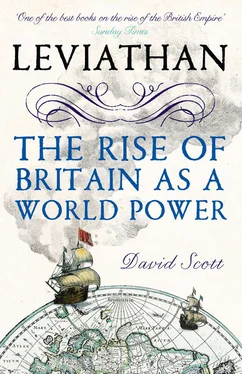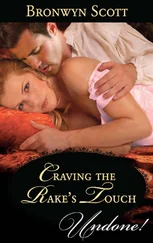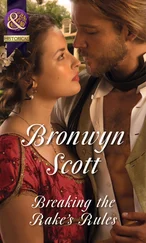In short, Henry had succeeded to a disparate collection of territories on the periphery of Europe. The idea that this small and vulnerable realm, along with the even smaller kingdom of Scotland, would one day form the heart of a great, transoceanic empire would have seemed preposterous to contemporaries. Even welding England, the least fragmented of Henry’s dominions, into a uniform state would be a major challenge. Moreover, his subjects were menaced by the Gaels in Ireland, and – more worryingly – by the Scots in northern England. Scotland may have been poorer and weaker than England, with a population of only about 600,000, but politically it was more stable; and the Scots’ ‘auld alliance’ with France – designed to preserve both kingdoms from English aggression – made them a potentially formidable enemy. Commercially and culturally the Scots were oriented more towards the French and the Baltic states than towards the English. Faced with a fragmented realm and hostile neighbours, and uncertain that the Wars of the Roses were truly over, Henry had no alternative but to make dynastic security his long-term priority. But in the short term, as he well knew, the best way to gain his subjects’ confidence, and quell ‘inward troubles and seditions’, was an honourable war against the only worthy foe in English eyes: the French. 7
Warlike Harry
In a century in which Henry VII’s predecessors had struggled to make their authority felt, the personal qualities of the king mattered more than ever. To the Tudor poet Edmund Spenser, the monarch stood in the very breach between order and chaos. Without ‘the continuall presence of their King’, he doubted whether the English would ever have outgrown ‘civil broiles’. 8The royal court (which, technically speaking, was wherever the monarch happened to be in residence), not Parliament, was the institutional heart of the realm. The monarch was ‘the Sunne of the Court, from whose glorie, all Courtiers, as starres, borrowe theire attracting splendor’. 9So what kind of man was Henry VII? The fullest description we have of him is by his own court historian Polydore Vergil, who was hardly the most impartial of royal biographers. Nevertheless, Vergil seems to have been accurate in two of his observations: that Henry’s presence of mind never deserted him, ‘even in moments of the greatest danger’; and that he ‘well knew how to maintain his royal majesty and all which appertains to kingship at every time and in every place’. 10
Medieval monarchs could display their ‘royal majesty’ in a variety of ways, but nowhere more impressively than in conducting foreign policy and the successful waging of war – and Henry was to have numerous opportunities for both during the early years of his reign. His own success in wresting the crown from Richard had demonstrated to foreign powers and potential rivals just what could be achieved with experienced foreign soldiers and a big slice of luck. So it came as no surprise to anyone that less than two years after the battle of Bosworth a new royal pretender had emerged: Lambert Simnel, the teenage son of an Oxford carpenter. Simnel was the front-man for a powerful group of Yorkist exiles backed by Edward IV’s sister Margaret of York and her nephew the earl of Lincoln. These would-be kingmakers connived in Simnel’s impersonation of Edward IV’s nephew, Edward, earl of Warwick – a man with an even stronger claim by royal lineage to be Richard III’s successor than Henry Tudor (and for which reason the real earl was a prisoner in the Tower). Late in 1486, Simnel landed in Ireland, where many of the nobility hailed him as king and had him crowned as ‘Edward VI’. The following year this ‘counterfeit Plantagenet’ invaded England with an army of 4,000 Irish light infantry, together with 2,000 German mercenaries from the army of Archduke Maximilian (who in 1493 would succeed his father, Frederick III, as Holy Roman Emperor and head of the House of Habsburg). The real leader of this invasion, the earl of Lincoln, had resolved ‘to try the fortunes of war, recalling that two years earlier Henry with a smaller number of soldiers had conquered the great army of King Richard’. 11But there would be no rerun of Bosworth. When the two armies met near Stoke on 16 June 1487, Lincoln’s troops fought bravely, but they were outnumbered by the king’s, who made short work of the lightly armed Irish, before dealing with the German mercenaries. Lincoln was killed in the battle; Simnel was captured and later put to work in the royal kitchens as a scullion. He was still alive when Vergil wrote his history of Henry VII in 1534.
Stoke was a painful warning that the Wars of the Roses might not yet be over. The birth of Henry’s first son Arthur in 1486, followed by Henry (the future Henry VIII) in 1489, did little to deter plots and foreign-backed imposters intriguing against his throne. In 1491 the Yorkists persuaded the son of a Flemish artisan, Perkin Warbeck (the Anglicisation of Pierrechon de Werbecque), ‘a youth of fine favour and shape’, to pose as the younger of the two princes who had been murdered in the Tower after Richard III’s usurpation. 12Warbeck was taken up at various times and for various reasons by Charles VIII of France, Emperor Maximilian, James IV of Scotland, the Irish magnate the earl of Desmond, and Margaret of York. Three times in as many years (1495, 1496 and 1497) Warbeck and his backers attempted to mount invasions of England – from the Continent, from Scotland, and from Ireland – only to fail on each occasion for lack of popular support. In the final attempt, Warbeck himself was captured and, after further intrigues, was executed in 1499. By then there were few, if any, noblemen left in England with the appetite or the landed power to disturb Henry’s throne. Nevertheless, the death of Prince Arthur in 1502, and Henry’s own poor health, left the crown vulnerable, if not to royal pretenders and ‘kingmakers’, then possibly to a succession crisis should the king die while the second and younger of his two sons, Prince Henry, was still a boy.
What made Yorkist conspiracies so dangerous to Henry VII was not their popularity in England – they had little – but the support they received from foreign princes, few of whom had reason to want a strong monarchy in England. The crown’s traditional claims to dominion throughout the British Isles had soured its relations with the Scots and large sections of the Irish elite. Here was one reason why Dublin and Edinburgh were receptive to such obvious frauds as Simnel and Warbeck. The French, too, had good cause to prefer a weak and divided England. For if the English had been pushed out of Scotland in the fourteenth century, and had gradually lost ground in Ireland, it was only because they had been too busy building a new empire for themselves in France. Of course, the English had been pushed out of France too (Calais excepted) in 1453 – and the 150 years between defeat in the Hundred Years War and the death of the last Tudor monarch, Elizabeth I, would prove one of transition between the Anglo-French ‘dual monarchy’ of the later Plantagenets and the British multiple monarchy of post-1603. But these lost territories in France exerted an almost magnetic pull on English monarchs well into the sixteenth century. The battles of Crécy, Poitiers and Agincourt were the stuff of English legend; indeed, were woven, thinly but conspicuously, into the fabric of national identity. ‘Warlike Harry’ and the Agincourt campaign would be the inspiration for perhaps Shakespeare’s greatest history play, Henry V . In the 1480s the wounds of defeat in France were still fresh and smarting, and hopes of recovering ‘the world’s best garden’ still very much alive. 13Losing the last parts of the once extensive Plantagenet empire in France seemed to signal England’s relegation to second-tier status in Europe, and the English elite was to expend much blood and treasure in attempting to reverse that defeat. English armies fought in France on at least eight occasions between 1475 and 1558; and in 1475, 1492, 1513 and 1544, kings of England led expeditions to France in conscious emulation of Henry V and other English heroes of the Hundred Years War. England’s mental surrender of its continental empire would be a slow and costly process.
Читать дальше












